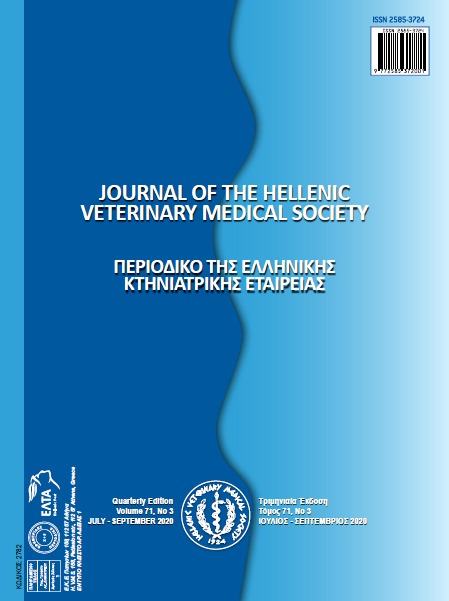Comparative efficacy of Amprolium, Garlic oil (Allium sativum) and Ginger oil (Zingiber officinale) against Coccidiosis in common quail (Coturnix coturnix)

Abstract
In birds, Eimeria species are commonly reported coccidian parasites that cause anorexia, debilitation, bloody diarrhea, mortalities and economical losses. This study was conducted on 30 clinical cases of common quails presented at Pet Centre, University of Veterinary and Animal Sciences, Lahore, suffering from coccidiosis. The aim of this study was to evaluate in vivo comparative anti-coccidial efficacy of amprolium, garlic oil and ginger oil. Drinking water of affected birds was supplemented with amprolium (130 mg/1000 mL), garlic oil (150μL/100 mL) and ginger oil (150μL/100 mL) for 15 days and fecal sample screening for coccidia oocyst count was performed on days 0, 3, 5, 7, 11 and 15 using direct microscopy with fecal floatation method and McMaster chamber counting technique. Data was statistically analyzed which revealed that amprolium showed highest and rapid efficacy against coccidiosis with complete disappearance of oocysts and improved activity level with better health, increased feed intake and normal feces on day 11, followed by garlic oil that showed recovery from oocysts on day 15, whereas in ginger oil treated birds oocysts were present till the end of study. It was concluded that amprolium is highly effective against coccidiosis followed by garlic oil; on the other hand, ginger oil was not clinically effective for the treatment of coccidiosis in quails.
Article Details
- How to Cite
-
ASGHAR, M., DURRANI, U., HUSSAIN, R., MATLOOB, K., MAHMOOD, A., ANEES, M., & ONEEB, M. (2020). Comparative efficacy of Amprolium, Garlic oil (Allium sativum) and Ginger oil (Zingiber officinale) against Coccidiosis in common quail (Coturnix coturnix). Journal of the Hellenic Veterinary Medical Society, 71(3), 2273–2278. https://doi.org/10.12681/jhvms.25072
- Issue
- Vol. 71 No. 3 (2020)
- Section
- Research Articles

This work is licensed under a Creative Commons Attribution-NonCommercial 4.0 International License.
Authors who publish with this journal agree to the following terms:
· Authors retain copyright and grant the journal right of first publication with the work simultaneously licensed under a Creative Commons Attribution Non-Commercial License that allows others to share the work with an acknowledgement of the work's authorship and initial publication in this journal.
· Authors are able to enter into separate, additional contractual arrangements for the non-exclusive distribution of the journal's published version of the work (e.g. post it to an institutional repository or publish it in a book), with an acknowledgement of its initial publication in this journal.
· Authors are permitted and encouraged to post their work online (preferably in institutional repositories or on their website) prior to and during the submission process, as it can lead to productive exchanges, as well as earlier and greater citation of published work.


